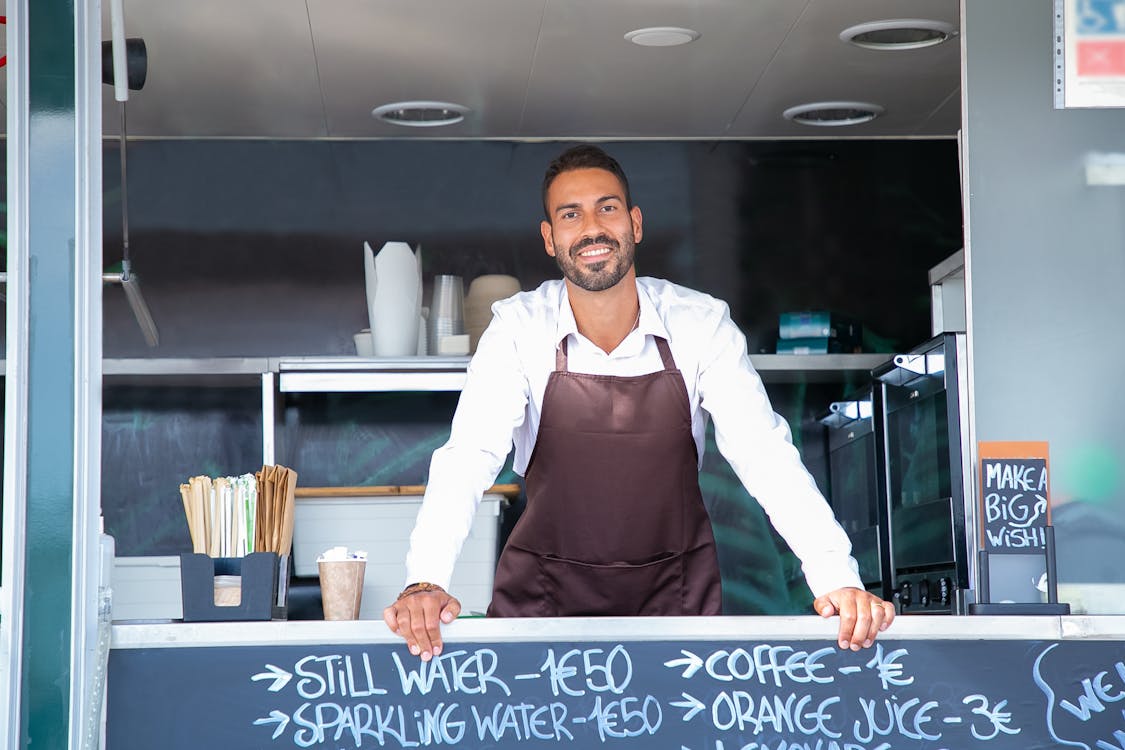Food Entrepreneur is another term that is taking the Food and Restaurant Industry by storm. These are the individuals who have nurtured an idea in food creation and delivery that will capture a large target audience and will stand out from the competition in the Food Business.
As the experts in the Food Industry continue to develop extraordinary business models, support local start-up food businesses and nurture unique restaurant concepts, it is no surprise that there are individuals who have chosen to step-up and create their products and try to be big in the Food Industry.
Read along to learn more about Food Entrepreneurs and how you can actually become a successful one.
WHAT IS A FOOD ENTREPRENEUR
Food Entrepreneurs are individuals or a group of people who establish their business in the Food and Culinary Industry. It could be a foodie who creates special quick meal kits, restaurant operators, or a co-founder of a food truck business. Technically, anyone who started a business in the Food Industry is considered as food entrepreneurs.

And as these individuals continue to thrive and stay ahead in a highly-competitive industry, or for those who are aspiring food business owners, they need to know what type of skills they should be nourishing.
WHAT TYPE OF SKILLS A SUCCESSFUL FOOD ENTREPRENEUR NEED
Food entrepreneurs should have solid culinary and business skills. If they can’t be both, they should have a partner who can fill the skill that they lack. There’s no sure recipe for success, but if you’re determined to fortify your success in this industry, you have to learn and polish up these skills:
- Team Player
- Food and Culinary Proficiency
- Business Management
- Leadership
- Financial and Budgeting Knowledge
- Public Speaking And Engagement
- Innovative
- Problem Solving Skills
TEAM PLAYER
Successful business leaders are often team players. If you want to do good in a fast-paced service industry, you better know how to work well with a team. This is because your team will act as the backbone of your business.
FOOD AND CULINARY PROFICIENCY

This skill doesn’t necessarily ask you to be a successful executive chef. You need to have enough knowledge about the whole industry. Knowledge in food safety, menu items, food quality, food economics and kitchen management are needed to be able to keep up with the challenge of being a successful food entrepreneur.
BUSINESS MANAGEMENT
A successful restaurant is not just about the food and the service. Being able to know how to formulate a business strategy, business plan, and business decision makes a huge difference for the whole restaurant business. Someone who has enough experience with business management makes a good food entrepreneur because he knows how the market works, and knows how to have a competitive edge in this industry.
Investors and money will come for you if they see that you know what you’re doing with your restaurant business.
LEADERSHIP
Being a team player makes you part of the team, but you also have to know when to step up and lead the whole team if needed. Successful food businesses have great leaders that encourage and push them to develop and nurture skills required to maintain and improve the entire workflow of the restaurant business.
This skill is essential for start up businesses who want to introduce their product offers, or for those who just developed a new business model for their food business. It is vital because they have to prove to the market, and to their investors (if they have one) that they are capable of running a successful restaurant or food business.
FINANCIAL AND BUDGETING KNOWLEDGE
Knowledge in finances is important in any business, investors and funders will look at how well you can manage and budget your finances. A food entrepreneur should know his way with finances and can write a financial plan which establishes the financial goals of his restaurant business.
PUBLIC SPEAKING AND ENGAGEMENT

Since food entrepreneurs belong in an industry where the core is customer service, they should know how to properly engage their customer base to their products and menu items. Being skilled in public speaking and engagement leaves a positive impact on your clients. Not only that you know how to speak with your target audience, but you also know how to win the heart of your clients.
This is important as, again, the competition inside the Food and Restaurant industry is high and winning loyalty from your clients has always been one of the toughest challenges for food entrepreneurs.
INNOVATIVE
How to stand out from the competition? How to keep my competitive edge? How to create a go to healthy meal? What business plan is the most effective for this customer base? What are the possible trends within the coffee shops? These are just some of the questions food entrepreneurs should continuously ask to themselves.
There will always be a new food and restaurant concept against yours, and it is one of your roles to constantly create and develop concepts that will keep your clients with your brand.
PROBLEM SOLVING SKILLS

Crisis inside the kitchen, crisis within the team, and crisis with the customers, are just some of the challenges you’ll need to handle as a food entrepreneur, that’s why it is crucial for you to have creative problem solving skills to prevent these crises from creating a negative impact on your restaurant business.
TOP FOOD ENTREPRENEURS IN THE UK
Here are some of the successful food business owners of local businesses who build out a food business from their creative and innovative minds. Check out these successful food entrepreneurs:
- Dafna Bonas (Indie Bay Snacks)
- Adam Wills & Jian-Peng Then (Crosstown Doughnuts)
- Jonathan & Alex Petrides (allplants)
- Paul Brown (BOL Foods)
- Hannah Adams & Jen Henry (Naked Dough)
- Harriott Pleydell-Bouverie (Mallow&Marsh)
- Matteo Ferrari & Nick Croft-Simon (White Rabbit Pizza Co.)
- James Averdieck (The Coconut Collaborative)
- David Knibbs & Lydia Smith (The Toofoo Co.)
- Emilie Vanpoperinghe & Deepak Ravindran (Oddbox)
- Brad Stevens (Pizza Punks)
- Olly Hiscocks (Olly’s Olives)
- Freddie Gore Brown & Luke Canvin (PRIME Bar)
- Adam & Drew Jones (Tattu)
- Meg & Jonathan Chapman (RawHalo)
Get to know more about these food entrepreneurs and their food businesses here.
FINAL THOUGHTS
This Covid-19 outbreak has caused the whole world to pause. It caused a lot of damage in the Food Industry, one of the economy’s biggest markets. With all the restrictions with dining-in options, social gatherings, and outdoor gatherings, it made the life of food entrepreneurs harder, but this doesn’t cause them to stop.
Food Entrepreneurs must have the needed skills for them to play their roles properly for their business. It is seen that 25% of people who drink are drinking more during the lockdown. This type of change in the market’s behaviour and spending habits led to concepts such as virtual restaurants, ghost restaurants, and food delivery markets. With the help of third-party delivery apps and those that are owned by the restaurants, coping with the new normal is getting easier.
source https://www.etakeawaymax.co.uk/successful-food-entrepreneur-skills/
No comments:
Post a Comment